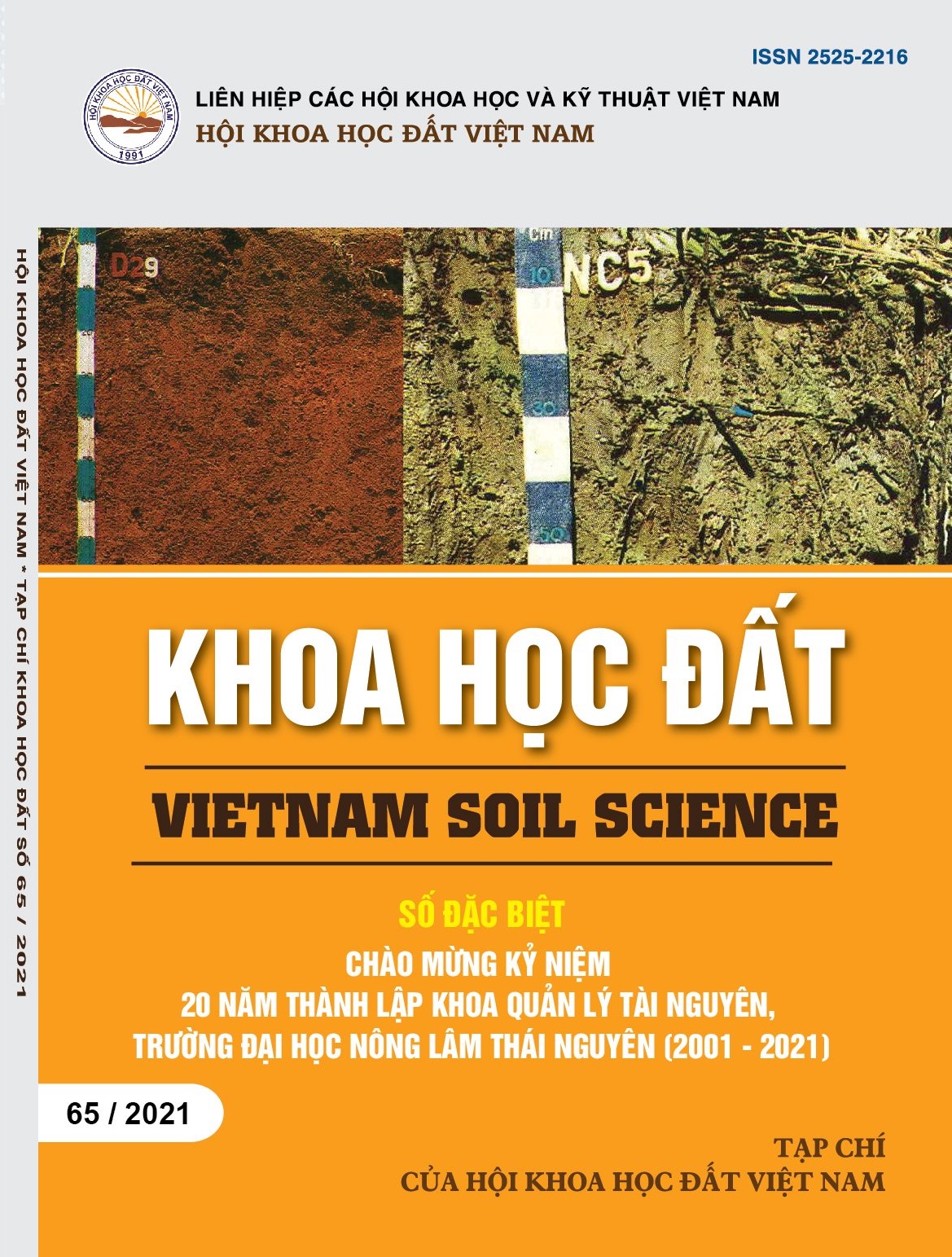THU TỪ ĐẤT VÀ VỐN HÓA ĐẤT ĐAI
Đặng Xuân Hòa1, Đặng Hùng Võ2, Trần Hữu Cường3
[1] Nghiên cứu sinh, Học viện nông nghiệp Việt Nam.2 Chuyên gia độc lập
3 Học viện nông nghiệp Việt Nam
Email: bds.daxh@gmail.com
TÓM TẮT
Nghiên cứu nhằm phân tích được các nguồn thu từ đất của nước ta hiện nay, tổng thu từ đất trên tổng thu ngân sách nhà nước đạt khoảng 14%, nếu so với tổng thu ngân sách địa phương thì đạt khoảng 28%, so với các nước công nghiệp trên thế giới, thu từ đất ở Việt Nam không cao. Nguồn thu từ nhà nước giao đất, cho thuê đất chiếm tỷ trọng cao nhất trong tổng nguồn thu từ đất. Nguồn thu từ nhà nước giao đất chiếm 80% tổng nguồn thu từ nhà nước giao đất, cho thuê đất (trong giai đoạn từ 2014 tới 2020). Như vậy, nguồn thu từ nhà nước cho thuê đất chỉ chiếm khoảng 19% tổng nguồn từ nhà nước giao đất, cho thuê đất. Tổng thu từ nhà nước giao đất, cho thuê đất chiếm 82% tổng thu từ đất. Trong khi đó, thu từ thuế sử dụng đất nông nghiệp được coi như bằng “0”; thu từ thuế sử dụng đất phi nông nghiệp chiếm khoảng 1% tổng thu từ đất; thu từ thuế, phí chuyển quyền bất động sản 15% tổng thu từ đất. Việt Nam chưa đánh thuế nhà, mà thuế sử dụng đất phi nông nghiệp lại quá thấp, khác với các nước khác, mức thuế đánh vào đất phi nông nghiệp và nhà khá cao nhằm nhiều mục đích. Vốn hóa đất đai là các phương thức chuyển đất đai thành vốn tính được bằng tiền. Ở nước ta, nhà nước hiện đang sử dụng một số phương thức chuyển hóa đất đai thành vốn (tiền) gồm: giao đất, cho thuê đất thuộc khu vực công để sử dụng trong khu vực tư phục vụ đầu tư phát triển; thu thuế sử dụng đất; đầu tư phát triển hạ tầng làm tăng giá trị đất đai; Sắp xếp lại việc sử dụng đất trong khu vực công; sử dụng đất trong đầu tư đối tác công – tư (PPP); cổ phần hóa doanh nghiệp nhà nước mà doanh nghiệp đó có sử dụng đất thuộc khu vực công.
Từ khoá: giá trị, đất đai, vốn, nguồn thu từ đất, vốn hóa đất đai
SUMMARY
Revenue from land and land capitalization
Dang Xuan Hoa1, Dang Hung Vo2, Tran Huu Cuong3
1 Postgraduate from VNUA.
2 Independent expert
3 Vietnam National University of Agriculture
Research aims at analyzing all sources of revenue from land in the country in the period of 2014-2020, total revenue from land over the total state budget revenue reaches about 14%, while about 28% of the local total revenue. It not so high in comparision with world industrial developed countries. State revenue from land allocation, land lease occupies the highest proportion of the total revenue from land, in which revenue from land allocation occupies 81%, from land lease is 19% of the state total revenue from land allocation, land lease (during the period of 2014 to 2020). Total revenue from state land allocation, land lease occupies 82% of the total land revenue. Meanwhile, revenue from agricltural land use tax is considered to be “0”; revenue from non-agricultural land use occupies about 1% of the total revenue from land; revenue from tax, real estate transfer fee occupies 15% of the total revenue from land. Vietnam has not taxed houses yet, while the non-agricultural use tax is too low, comparing with other countries, the non-agricultural and house tax is so high with various purposes. Land capitalization is the method of converting land into capital that can be measured in money. In our country, the state actually uses some methods of converting land into capital (money), includes: land allocation, public land lease to private use for development investment; collecting land use tax, ỉnfrastructure development investment to increase land value. Reorganization the land use in the public area; land use in investment of public-private partnership (PPP); equitiztion of state enterprises which has used land of the public area. Research has given the real status of applying methods of land capitalization, advantages and disadvantages of each method, to be used as the basis to reform the land finance system in particular and land law in general.
Key words: revenue source from land, land capitalization.
Người phản biện: TS Nguyễn Đình Bồng
Email: ndbong1947@gmail.com
Ngày nhận bài: 15/7/2022
Ngày thông qua phản biện: 16/9/2022
Ngày duyệt đăng: 19/9/2022
 Tạp chí
Tạp chí




